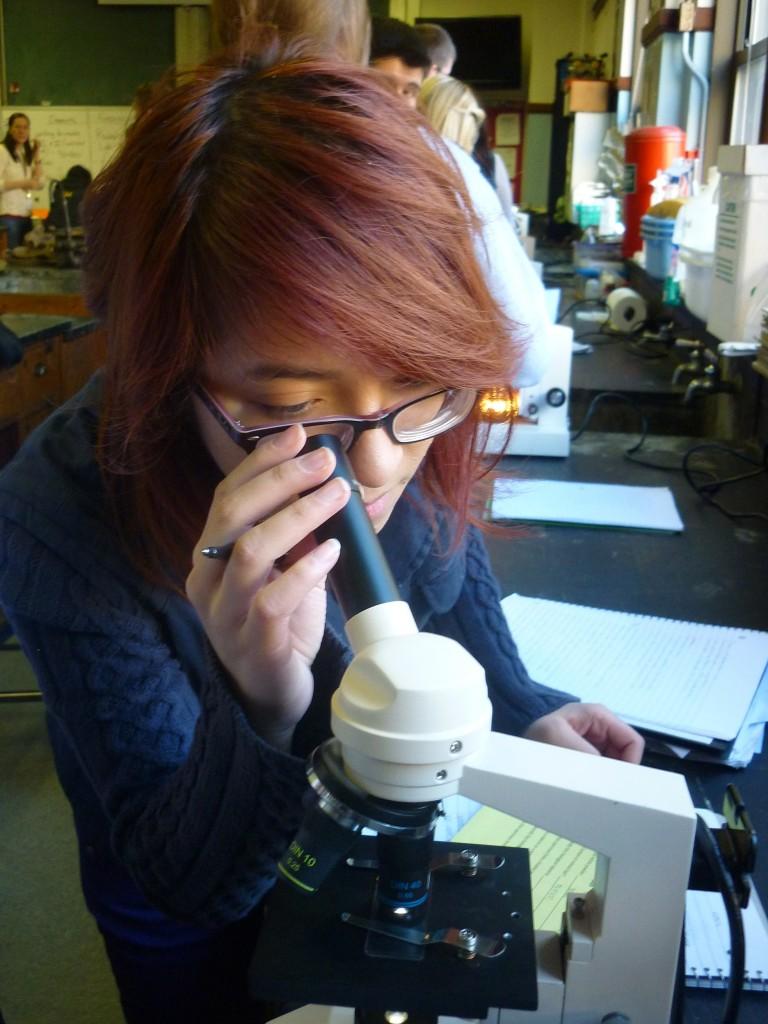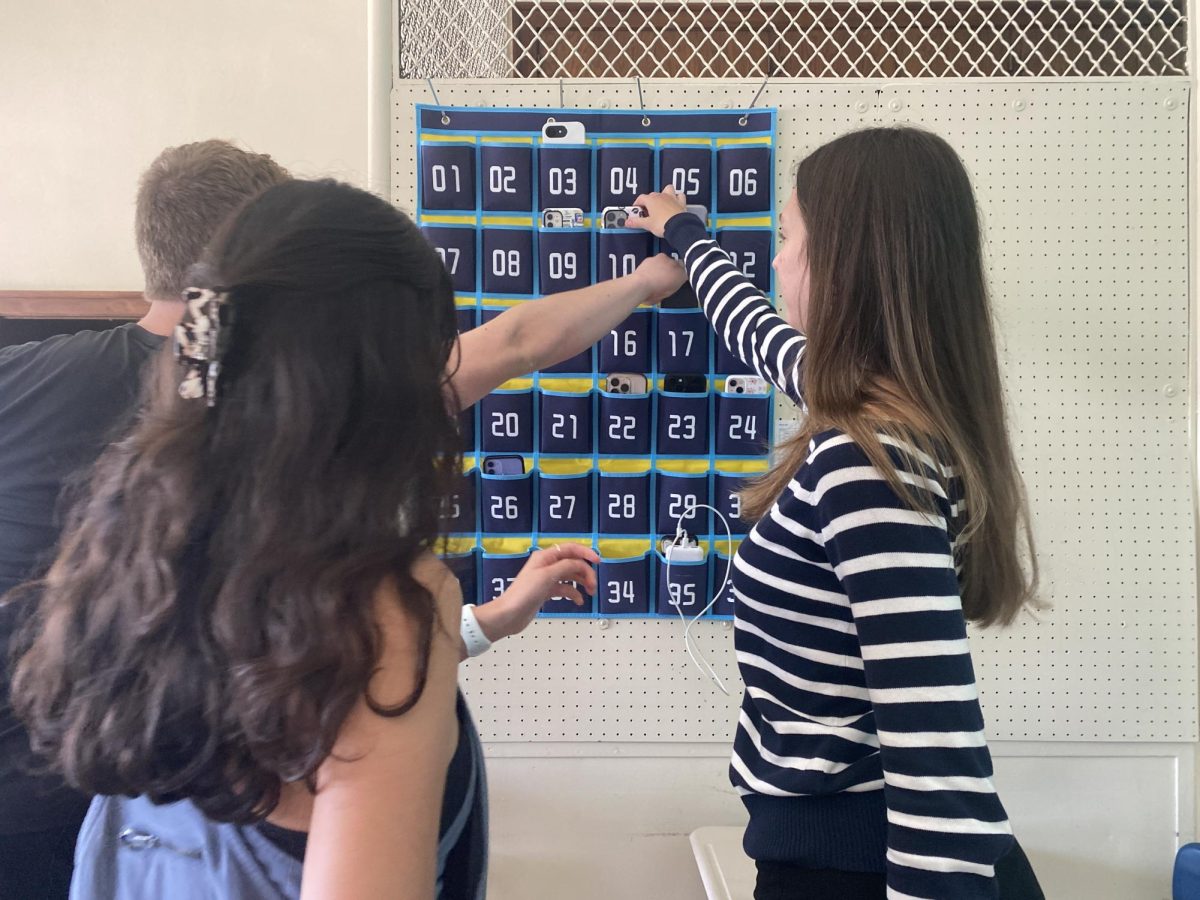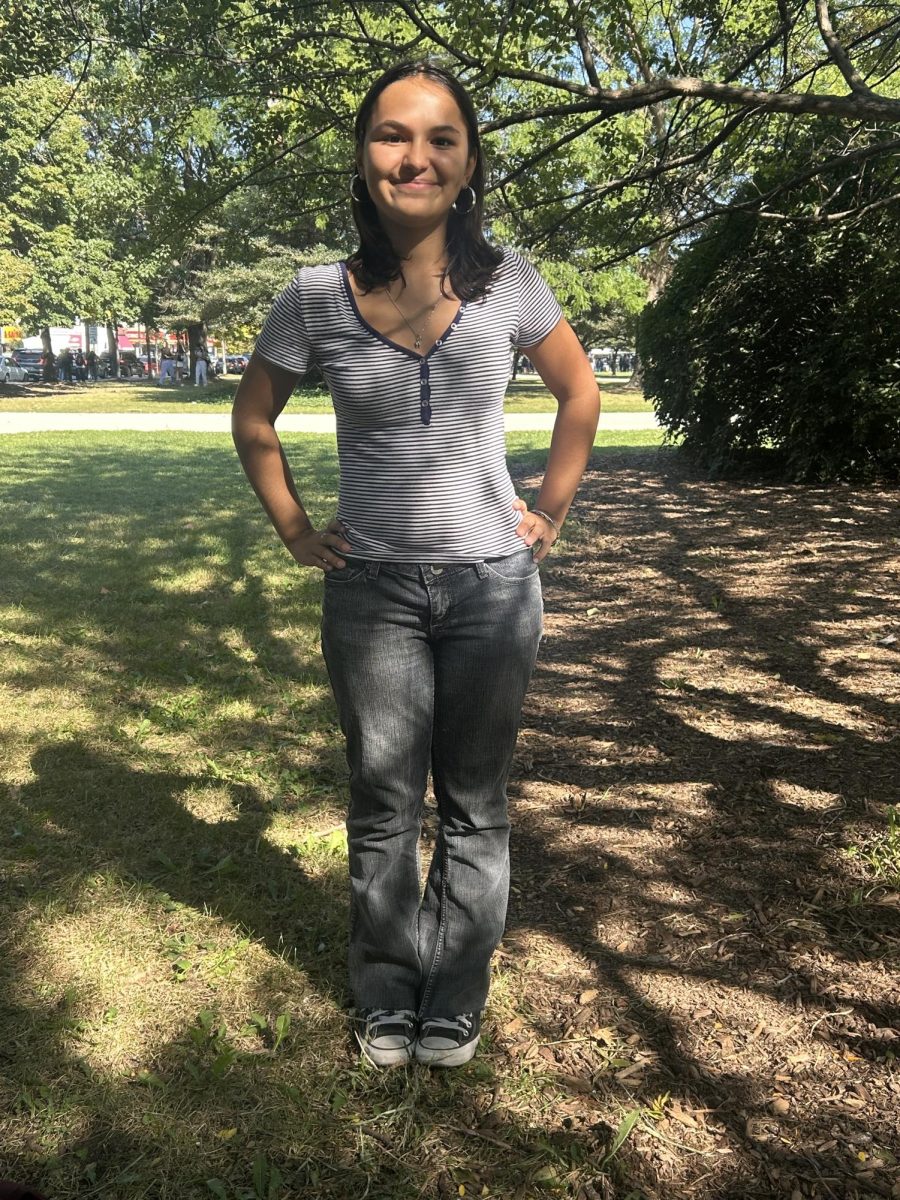Lane students get headstarts on futures
By Ben Palmer
While the average student may spend his or her free time watching TV or going to parties, some Lane students are making early preparations for lifelong careers. Caitlin Walerowicz, Div. 272, uses her elective classes and summer breaks to ready herself for a career in Physical Therapy.
“I was working in a hospital’s rehabilitation room and it was mostly older people who had just had replacement surgeries,” said Walerowicz, who started volunteering at a hospital the summer after her sophomore year.
After experiencing the field first hand, Walerowicz decided to focus on the human body in her studies. She currently takes Anatomy and has taken AP science classes.
“Obviously you have to know the bones, tissues, muscles,” Walerowicz said. “I already saw for the [human kinetics] major [at the University of Illinois] that I have to take a lot of anatomy. Physics helps too.”
Students like Walerowicz benefit from their early decision for future career tracks. This allows them to work both in and out of school to prepare for college and beyond.
“I want to retain what I learn in my science classes,” said Kristen Kelly, Div. 362, “and I want to retain it for life.”
Kelly plans on becoming a radiologist and currently takes AP Biology and Genetics, both of which are useful in her intended career.
“I only really took AP Biology and Psychology for the fun,” Kelly said, “but I took AP Calculus to place out of math [in college].”
Kelly hopes that by taking AP math classes in high school, she can get those credits out of the way and focus more on her intended major in college.
Lily Hart, Div. 270, has taken an impressive list of classes including Microbiology, Anatomy, AP Biology and AP Environmental science. She says that her work load is primarily focused on preparing herself for a career in microbiology.
“I even just do science stuff on my own,” said Hart. “I like to go to American Science and Surplus and buy petri dishes and augur and just do stuff myself.”
So far Hart has grown and experimented on mold in her free time, in addition to experimenting on E. coli for Lane’s science fair each year. Her experiments for the fair look at the effects of variables like temperature, luria broth, and garlic on E. coli.
Hart says being in the Alpha program at Lane has helped her focus on science, as has working with her mother in an oncology office.
While these three students seem science-bound, math teacher Ms. Gonzales says it is easy to prepare for careers in mathematics and engineering as well.
Gonzales says that although many engineering classes have been eliminated from Lane, there is a push to bring them back. Part of this rebirth of engineering and math can be seen in the GEMS (Girls in Engineering, Math, and Science) program at Lane.
“GEMS opens eyes to engineering opportunities for girls,” said Gonzales. “There’s actually a lot of money going toward that cause nationally.”
For those who simply wish to prepare themselves mathematically for life after high school, Gonzales says her Discreet Math elective would do the trick.
“It’s mostly seniors in the class fulfilling their math credit,” Gonzales said. “But it teaches you about the business world, insurance…even how to do taxes.”
Gonzales says that the biggest question she receives in math classes is, not surprisingly, “‘When am I gonna use this in real life?'”
“It’s difficult because of a lack of flexibility,” Gonzales said regarding her desire to apply mathematic concepts to the real world. “The way math is taught nationally, we push for mastery, but not an understanding of why [math is important.]”
Gonzales believes that to be a marketable job applicant in the future, students need a basic foundation not only in mathematics but also in engineering. She says she hopes to see more engineering classes at Lane in the future.
Like Gonzales, science teacher Ms. Benas says that all good applicants in the science field need some basic skills, many of which can be learned at Lane.
“For any science career in general, you need exposure to the scientific method, experimenting procedures, and research methods,” said Benas, who teaches Alpha biology and various genetics classes. Benas was pleased to hear of Kelly’s desire to go into radiology, and was glad that her class could help.
“I have another student who’s taking genetics because she wants to go into nursing,” Benas said.
To students interested in a career in science, Benas says it isn’t enough to take classes.
“Don’t just go to school for it. Experience it!” Benas said. “Get an internship! Try it out! See if you like it!”
Benas said internship opportunities are constantly offered to Lane students, and those interested should ask their teachers about these chances at first-hand experience.
“I worked at a wildlife foundation and taught education programs to kids, school groups, even college kids getting class credit,” Benas said, adding that this is how she discovered her love of teaching.
“There are volunteer positions in labs…the botanical gardens, hospitals…through the fire department,” Benas said.
Benas also was quick to list careers which classes at Lane could lead to, which can be seen in the box below.
It is easy to ignore the future and live in the now, but these teachers and students agree that starting early pays off. By preparing in high school, a student can look forward to a successful college career and increased job opportunities after their education is finished.






